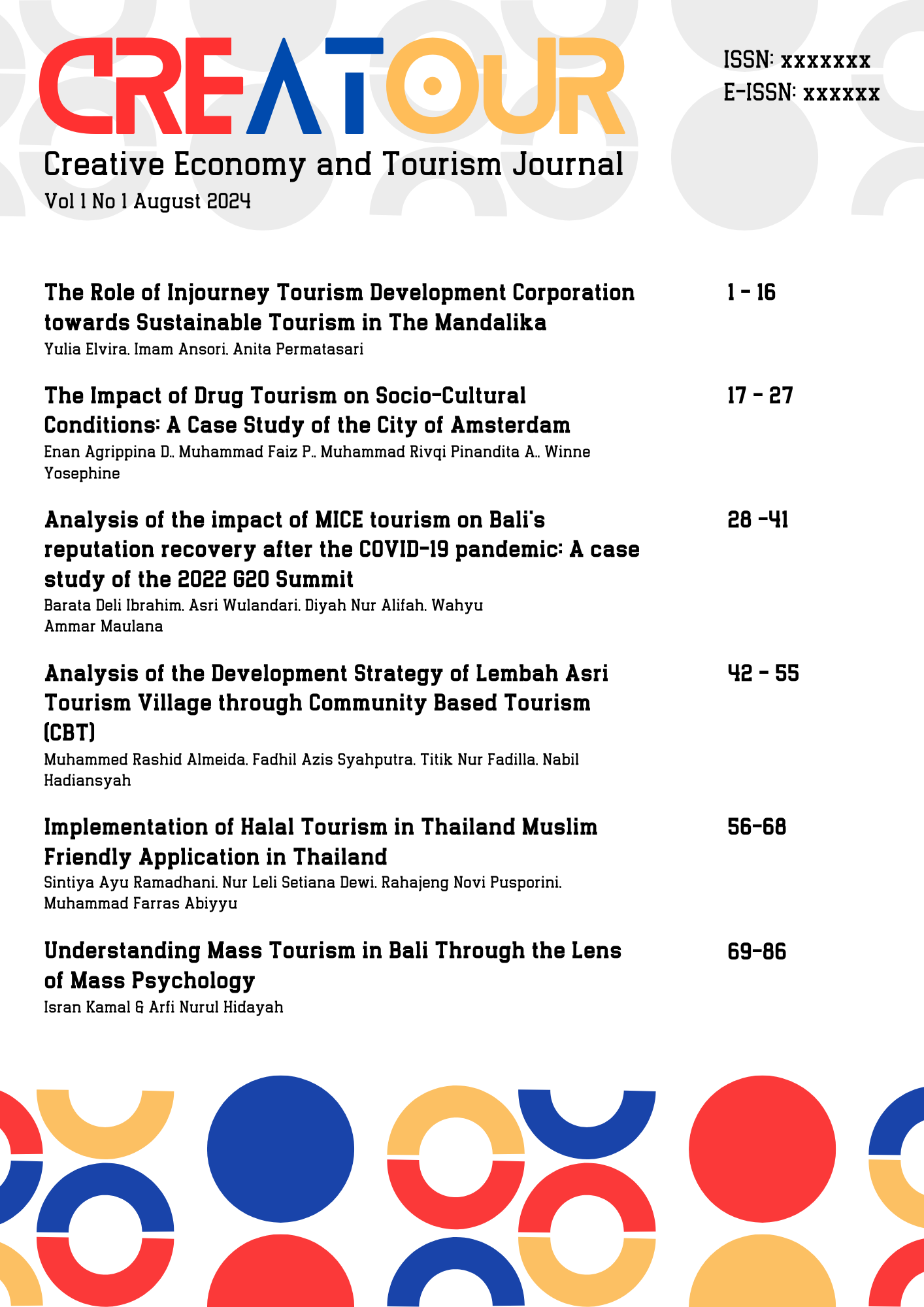Understanding Mass Tourism in Bali Through the Lens of Mass Psychology
Abstract
This research investigates mass tourism in Bali through the perspective of mass psychology, aiming to understand the collective behaviors and decision-making processes of tourists. Mass tourism, driven by economic, social, and technological factors, has transformed Bali into a prominent global destination, bringing both economic benefits and significant challenges. The study explores how principles of mass psychology, such as herd behavior, social influence, and the bandwagon effect, explain the surge in tourist numbers and their concentration in specific locations. While mass tourism contributes to economic growth and employment, it also results in environmental degradation, cultural commodification, and social tensions. The research employs a review methodology, synthesizing existing literature to highlight the complex interplay between mass tourism and mass psychology. The findings underscore the necessity for sustainable tourism practices that balance economic gains with the preservation of Bali's natural and cultural heritage, advocating for policies that address the negative impacts of mass tourism while enhancing the positive outcomes for local communities.



